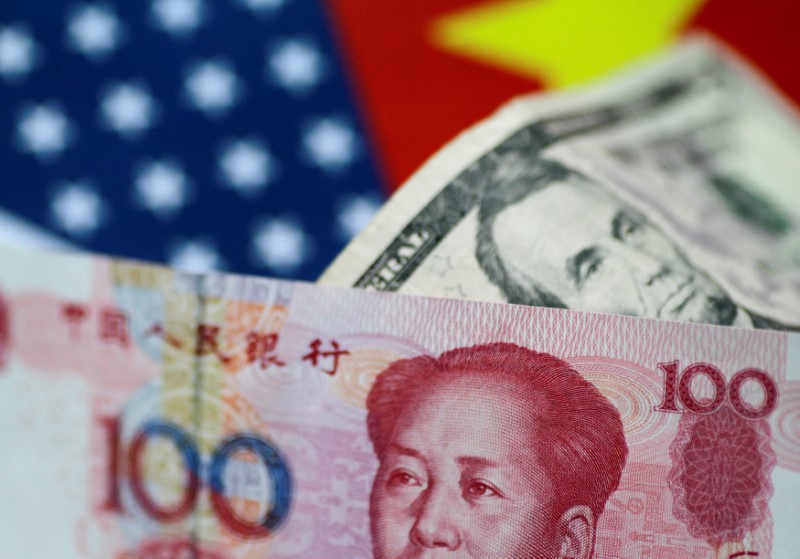Investing.com– Most Asian currencies moved in a flat-to-low range on Thursday as the prospect of slower U.S. interest rate cuts in 2025 kept traders averse to regional markets.
The Chinese yuan was among the worst performers for the day as purchasing managers index data showed support from stimulus measures rolled out in recent months was now petering out.
Regional trading volumes were still limited, as major markets such as Japan remained closed for the New Year holidays.
The dollar remained upbeat, benefiting from expectations of a slower pace of rate cuts by the Federal Reserve in 2025, while protectionist policies under incoming President Donald Trump are also expected to favor the .
The and moved little in Asian trade, but were at their highest levels since November 2022.
Chinese yuan slips as manufacturing PMIs disappoint
The Chinese yuan weakened on Thursday, with the pair rising 0.3% to 7.3190 yuan- its highest level in over a year.
data showed that the country’s manufacturing sector grew less than expected in December as support from recent stimulus measures ran dry.
The reading came just days after data also showed weaker-than-expected growth in the manufacturing sector.
The prints ramped up concerns over a slowing economic recovery in China, with recent stimulus measures having provided only limited support. Increased trade headwinds under Trump are also expected to pressure the Chinese economy, although Beijing is expected to dole out more fiscal stimulus to offset this trend.
Asia FX nurses losses in 2024
Most Asian currencies steadied on Thursday after mostly logging losses through 2024. A bulk of these losses also came in recent months, as the prospect of slower rate cuts and more protectionist U.S. policies saw traders largely favor the greenback.
The Japanese yen was among the worst hit by this trade, as a mostly dovish outlook for 2025 from the Bank of Japan added to pressure on the currency. The yen’s pair moved little on Thursday after surging to a five-month high of nearly 158 yen in recent sessions.
The South Korean won firmed on Thursday, but was among the worst performing Asian currencies in 2024. The won’s pair rose nearly 15% in 2024, with heightened political turmoil in the country adding to pressure on the won.
The Singapore dollar’s pair fell 0.2% on Thursday, benefiting from gross that showed the economy grew more than expected in 2024, at 4%.
But slowed sharply in the fourth quarter, raising doubts over the island state’s economic outlook in the coming quarters.
The Australian dollar’s pair rose 0.5% after sliding to a more-than one-year low, while the Indian rupee’s pair fell 0.3% after hitting a record high of 86 rupees this week.



